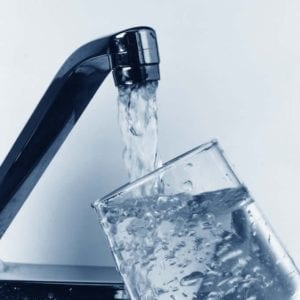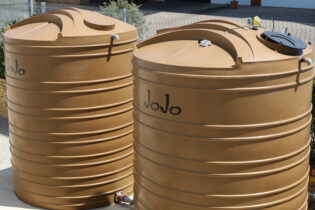At the end of last month Cabinet approved for gazetting and a public consultation process, the National Water Policy Review, which is undertaken as a means to fill in the existing gaps in water policy and to facilitate necessary amendments. Speaking at a briefing on the process on Tuesday 3 September, Minister of Water and Environmental Affairs, Edna Molewa, indicated that while the review was gazetted on 30th August 2013, any interested parties and the relevant water role-players had 30 days from then to comment, with public consultations set to take place across the country.
According to Molewa, the review addresses 12 key policy positions. These are as follows:- 1. Multiple water use approach in planning infrastructure: This incorporate sall water uses in an area including water supply, must be adopted in planning of bulk water infrastructure. This approach will also have equity and transformation as a priority.
- 2. Access to basic water supply: Free basic water supply will be provided to only indigent households, this free basic water supply applies to the provisionof a minimum of 25 litres per person per day.
- 3. Application of the use it or lose it principle: This means that any authorised water use, including Existing Lawful Use (ELU), which is not utilised for aspecified period, should be reallocated to the public trust managed by the Minister as custodian of the nation’s water resources.
- 4. Water trading between authorized water users: The position is that there shall be no form of temporary or permanent trading between authorised water users. It will be obligatory for any holder of an entitlement to use water which is no longer utilised to surrender such use to the public trust (the State). This position further strengthens the use it or lose it principle.
- 5. Prioritising social and economic equity in the re-allocation of water: Priority will be given to water use authorisation applications that meet the equity requirement as provided in the regulatory instruments.
- 6. Economic regulation will be applied throughout the water value chain, to avoid any conflict of interest, real or perceived, water use tariffs will be determined annually by DWA, in consultation with National Treasury.
- 7. Establishment of Regional Water Utilities:This makes provision for the Minister to issue a directive for a Regional Water Utility to address water infrastructure development and/or maintenance needs in an area.
- 8. Roles and Functions of Water Users Associations: The minister will specifya date by which the Water Users Association and irrigation Board will cease toexist, with the appropriate functions related to state-owned water scheme being delegated to a CMA or Regional Water Utility.
- 9. Appeal functions to be aligned with NEMA and other appealmechanisms: In line with NEMA, the process of speedily, cheaply and transparently resolving difference or disagreements will be mediation. The Minister may appoint an independent panel, based on the conditions that he/she deems necessary, to advise on a dispute/s.
According to Molewa, among the major decisions taken is that the National Water Act and the Water Services Act should be brought into one, so as to ensure a seamless approach in Legislation governing water. “This is because of the fact that there have been a number of implementation challenges arising from two pieces of legislation.”
Molewa added that challenges that have been identified include that the current Legislation does not contain any mandate at the national level for the development of a strategy that covers the entire water value chain. “Although the department is working on an infrastructure investment framework which covers both water supply and sanitation services as well as water resources infrastructure, this is not enabled by any Legislation.” “Separate strategies for the management, development, control and protection of water resource and the provision of water supply and sanitation service results in inconsistency in the management of the entire water value chain,” concluded Molewa.






